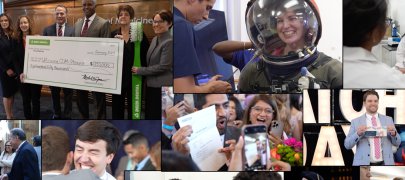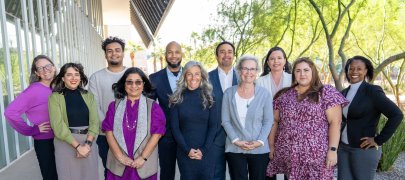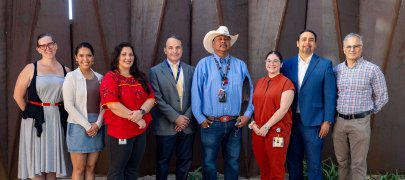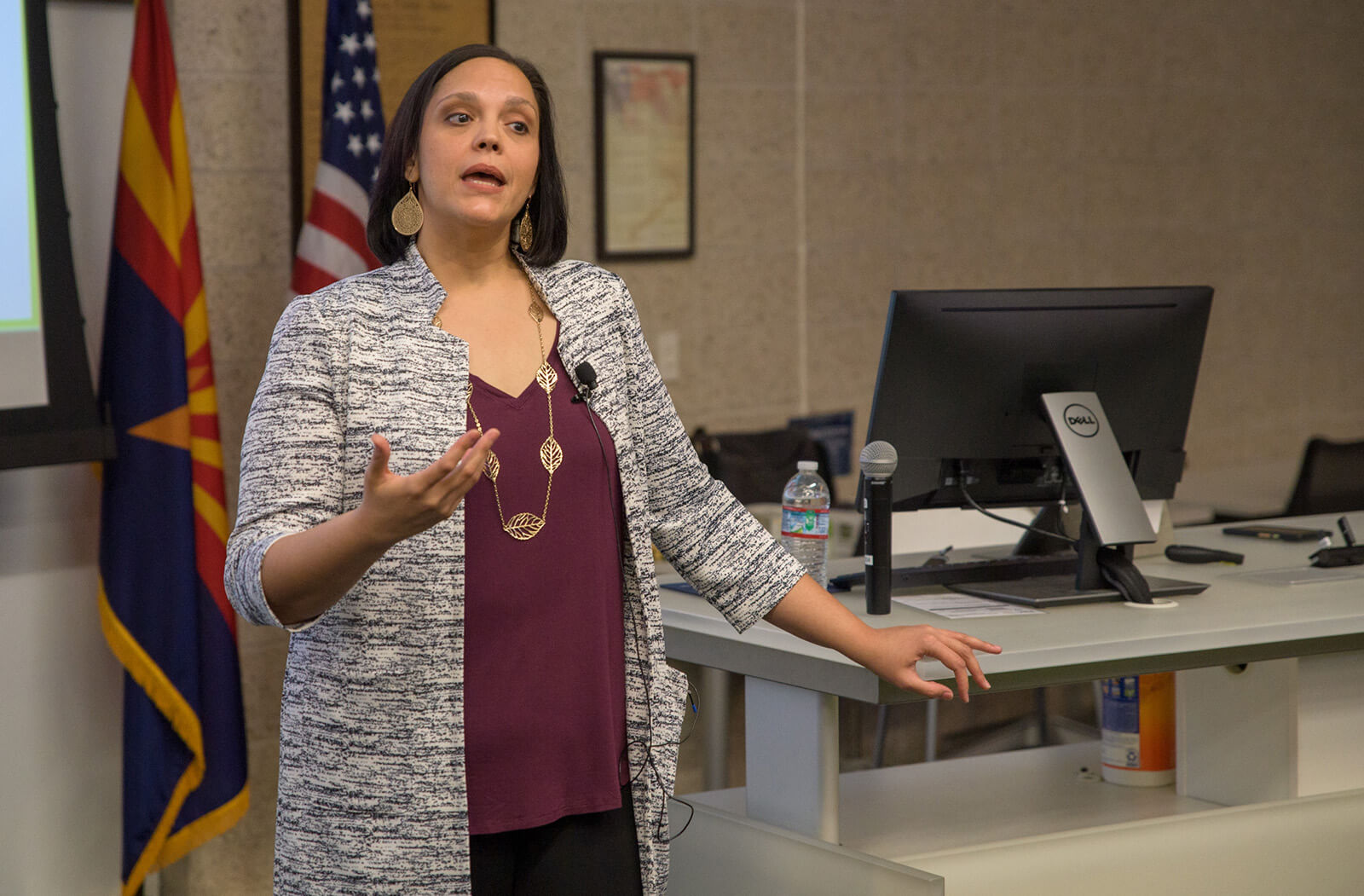
Lunch and Learn Event Hosted by Latino Medical Student Association

The Latino Medical Student Association (LMSA) at the University of Arizona College of Medicine – Phoenix hosted a Lunch and Learn event in celebration of Hispanic Heritage Month.
Cristalís Capielo Rosario, PhD, assistant professor in the Counseling and Counseling Psychology Department at Arizona State University (ASU), led the session on cultural competency training.
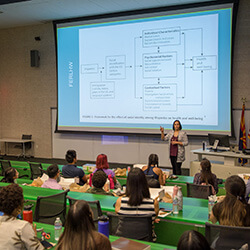
“Imagine this: You come from another place, you don’t know the language, you don’t have social support. That’s all going to affect whether or not you receive the care that you need.” Dr. Capielo Rosario said. “My life’s work has been dedicated to try to understand what is going on here.”
Gillian Reynoso is a second-year medical student and a co-president of the LMSA. She said while planning events for Hispanic Heritage Month, she realized that there is not enough discussion about the Afro-Latinx populations.
“Identity is a common battle we have within the Latinx community,” Reynoso said. “However, I remembered watching a documentary where a member of an Afro-Latinx community talked about not being accepted as Latinx, but also struggled to be accepted within the Black community due to cultural differences.”
In researching specific disparities, the Afro-Latinx community faced, Reynoso said she found many research papers written by Dr. Capielo Rosario. Reynoso sent Dr. Capielo Rosario an email inviting her to speak at the event. From there, the lunch and learn talk was born.
Health disparities addressed in Dr. Capielo Rosario’s seminar included COVID-19 needs and the connection between the ethnic and racial identities of Afro-Latinx people, as well as how systemic discrimination affects them.
“Researchers have found that Black and Latinx patients are more likely to receive inaccurate diagnoses and feel distrustful and misunderstood,” Dr. Capielo Rosario said. “As a consequence, Black and Latinx patients may experience more severity of disease.”
Reynoso said she was able to learn more about the topic while planning the event and wants to help bridge the gap of disparities while educating others on the differences between the many cultures within the Latinx and Afro-Latinx communities.
“I hope people see Dr. Capielo Rosario’s suggestions for change and how to continue advocating for these groups of patients and changing the way we approach Latinx patients,” Reynoso said. “As a future physician, I will also begin to apply Dr. Capielo Rosario’s perspectives.”
In collaboration with White Coats for Black Lives, the event was sponsored by the college’s Office of Equity, Diversity and Inclusion (OEDI).
About the College
Founded in 2007, the University of Arizona College of Medicine – Phoenix inspires and trains exemplary physicians, scientists and leaders to optimize health and health care in Arizona and beyond. By cultivating collaborative research locally and globally, the college accelerates discovery in a number of critical areas — including cancer, stroke, traumatic brain injury and cardiovascular disease. Championed as a student-centric campus, the college has graduated more than 900 physicians, all of whom received exceptional training from nine clinical partners and more than 2,700 diverse faculty members. As the anchor to the Phoenix Bioscience Core, which is projected to have an economic impact of $3.1 billion by 2025, the college prides itself on engaging with the community, fostering education, inclusion, access and advocacy.
